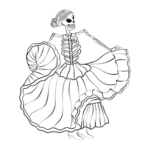Positioned like a timestamp, different versions (noted by date) show the progression of a speaker who from 12 years old experiences bite marks and needles, drawing blood on seemingly both a physical and spiritual level. Throughout, KB’s attention to detail enunciates each question, positioned in a way that makes the reader want to answer back.
“How To Identify Yourself with a Wound (2016)” is a laundry list of “dollar tree black nail polish” and favorite jackets, all ways to cover up the rough edges. The speaker catalogs each perceived blemish alongside each ghost:
To the scars blotched over my legs from scratching mosquito bumps
To being a “tomboy” in elementary & middle school
To the manuscripts I didn’t finish, to the fragments that choked them out
To the stretch marks on my stomach & forearms & shoulders
To S fro being able to wear tampons
To the animals of past lovers I miss more than the lovers
The word here is “uncontainable,” a lasting thought that questions which moments we want to carry with us. KB’s meditations on wounds take the reader into and through each second of the speaker’s doubts. The poem “& all it amounted to was laps around the sun” traces lingering spirits from dawn to dusk, with a magnifying glass on why each second matters:
On nights when I see the moon still wrapped with your name, I stick
my pillows in the middle of my thoughts & wake with your clothes
still there. How selfish of the universe to not let us be; how silly
Every lap around the sun has felt since.
Of course, the poems in How To Identify Yourself often move beyond bodies & gender to time and place, though these posed as arguably the same. “Elon Musk is Moving to Austin” examines the ever-present specter of gentrification in the off-kilter city. Lines like “I want every grandpa truck to stay owned by a grandpa / & my grandpa to always have gap-toothed yellow teeth” give a warts-and-all sentiment that outsiders fail to see as their invasion ultimately scrambles the “audible history / of what Austin used to be.” Texans do not like to lose ground unless it suits the needs of the rich.
How to Identify Yourself leaves its mark via poems like “I’ll Miss the Women’s Restroom” and “Break up with your gender, I’m bored,” both examples of finding wit in loss or social assimilation/expectations. KB’s latest collection moves every person affected by gender-specific lawmaking to the forefront where they cannot be ignored. Make no mistake, this book highlights the bloodletting that occurs daily in areas where no one is welcome unless they are welcome. As KB writes in the opening poem, “Greetings from Fort Worth, Texas,” where the poet is from,“I want to love this city.”




